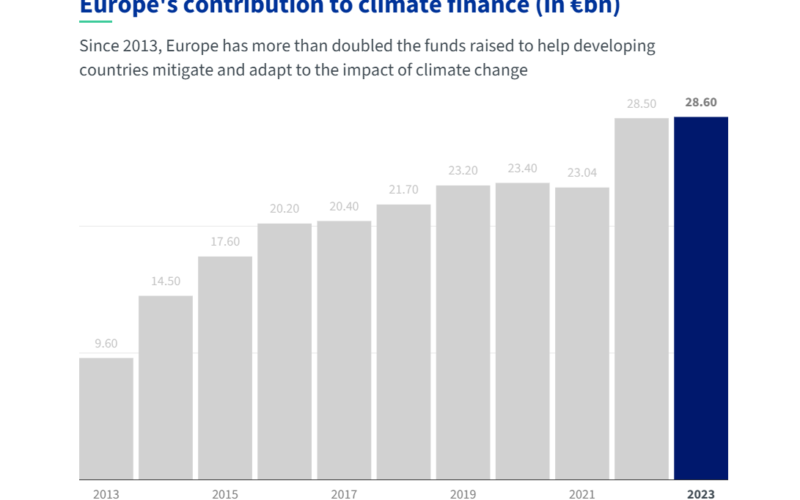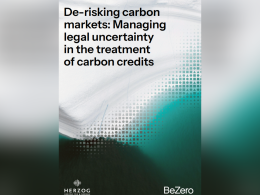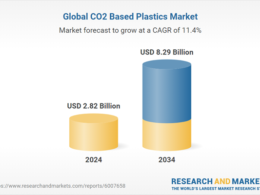The European Union and its 27 member states provided €28.6 billion ($31 billion) in climate finance from public sources in 2023 and mobilised an additional €7.2 billion ($7.8 billion) in private funding to help developing countries reduce greenhouse gas emissions and adapt to climate impacts. These figures, released by the Council ahead of the COP29 Climate Conference in Baku, Azerbaijan (November 11–22), are based on EU climate finance reporting requirements as outlined in the governance regulation.
According to data from the European Commission, about half of the public funding went toward climate adaptation or cross-cutting actions, integrating both mitigation and adaptation efforts. Notably, nearly 50% of the EU’s public contribution was grant-based. The EU is also expanding its approach to climate financing by diversifying sources and leveraging additional private finance, key strategies for advancing global climate action under the Paris Agreement.
The EU’s 2023 climate finance reaffirms its commitment to the developed countries’ collective goal of mobilising $100 billion annually for climate finance through 2025. The €28.6 billion ($31 billion) in public climate funding includes €3.2 billion ($3.4 billion) from the EU budget—largely through the European Fund for Sustainable Development Plus—and €2.6 billion ($2.8 billion) from the European Investment Bank. The total reflects commitments for bilateral initiatives and multilateral disbursements for the 2023 calendar year.
The additional €7.2 billion ($7.8 billion) in private finance, mobilised through public interventions such as guarantees, syndicated loans, and direct investments, represents a growing pool of climate-related funding without drawing on public budgets. The EU and its member states reported these figures according to climate finance regulations, reinforcing their leadership in global climate finance commitments.





















